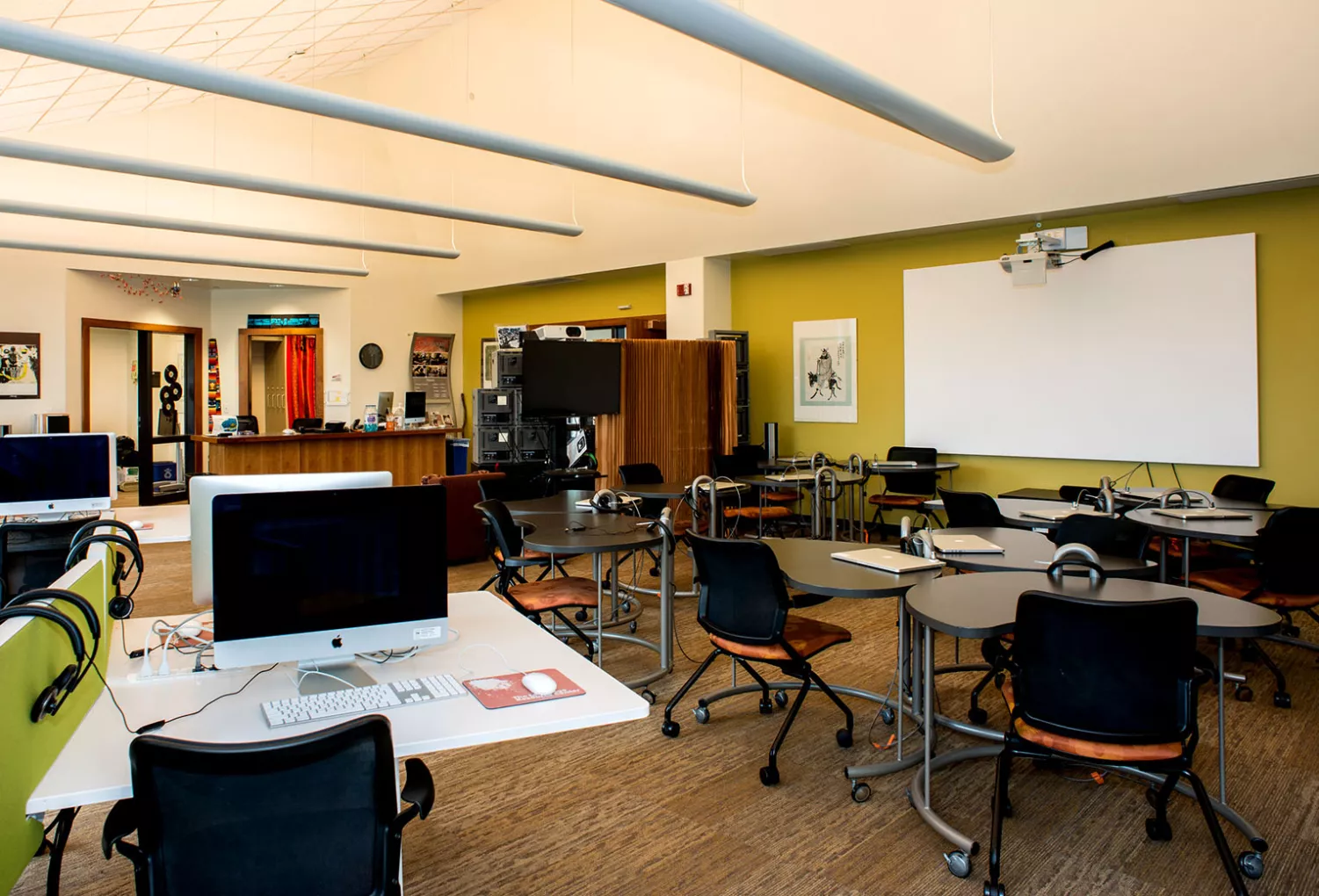The German Studies Section offers courses ranging from intensive elementary German to the age of Goethe, from the urban modernity of Vienna and Berlin to German Cinema and contemporary popular culture.
German is spoken in three countries with diverse cultural, political, and economic traditions: The Federal Republic of Germany, Austria, and Switzerland. It is also the mother tongue of significant minorities in neighboring countries. Among Europeans, in fact, the approximately 98 million native speakers of German greatly outnumber those of English, French, Italian (58-60 million each), or Spanish (36 million). In business, diplomacy, and tourism, German ranks second to English in Western Europe, and in Eastern Europe it holds first place. Knowledge of German grants access not only to rich literary, philosophical, and artistic traditions but also to many other kinds of contemporary cultural, economic, political, and scientific developments. German at Swarthmore therefore offers a curriculum that reflects these wide-ranging interests. Students also have the opportunity to apply for membership in the German Honors Society (Delta Phi Alpha) and for financial support for study and research abroad as well as for immersive language study.
The core faculty and staff of German Studies at Swarthmore personally and professionally contribute to the inter-cultural and inter-disciplinary nature of German Studies. Hansjakob Werlen, a native of Switzerland, has published on 19th-century writers Kleist and Herder as well as on the works of Canetti. Sunka Simon, hailing from the North-German Hamburg, has published on Elfriede Jelinek, German film, and popular culture. Her latest book explores German Crime Dramas from Network Television to Netflix (2023).












